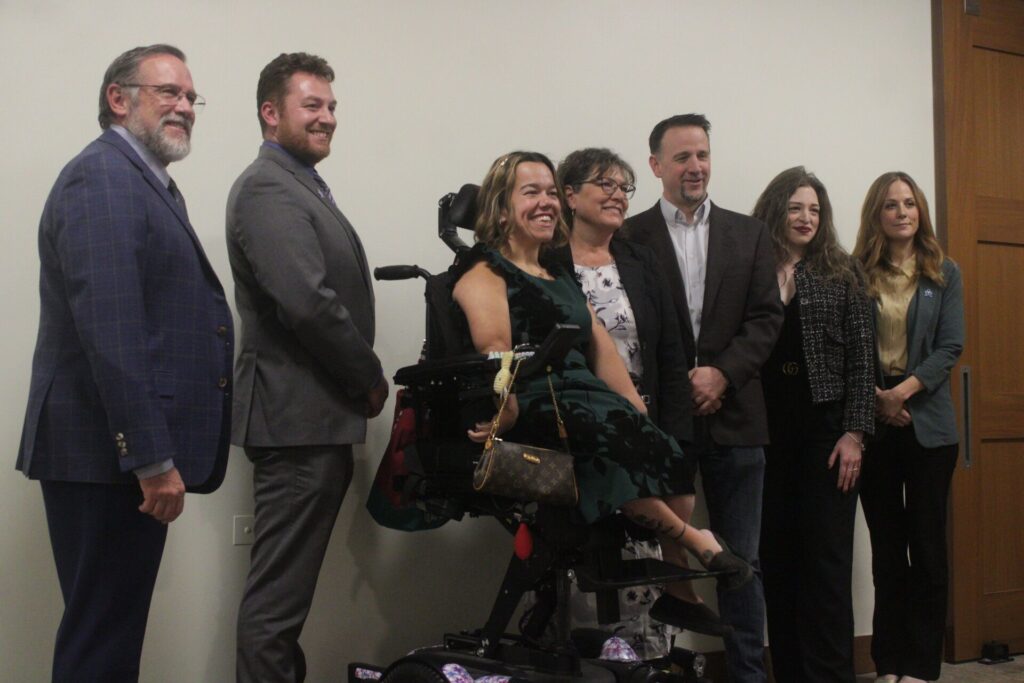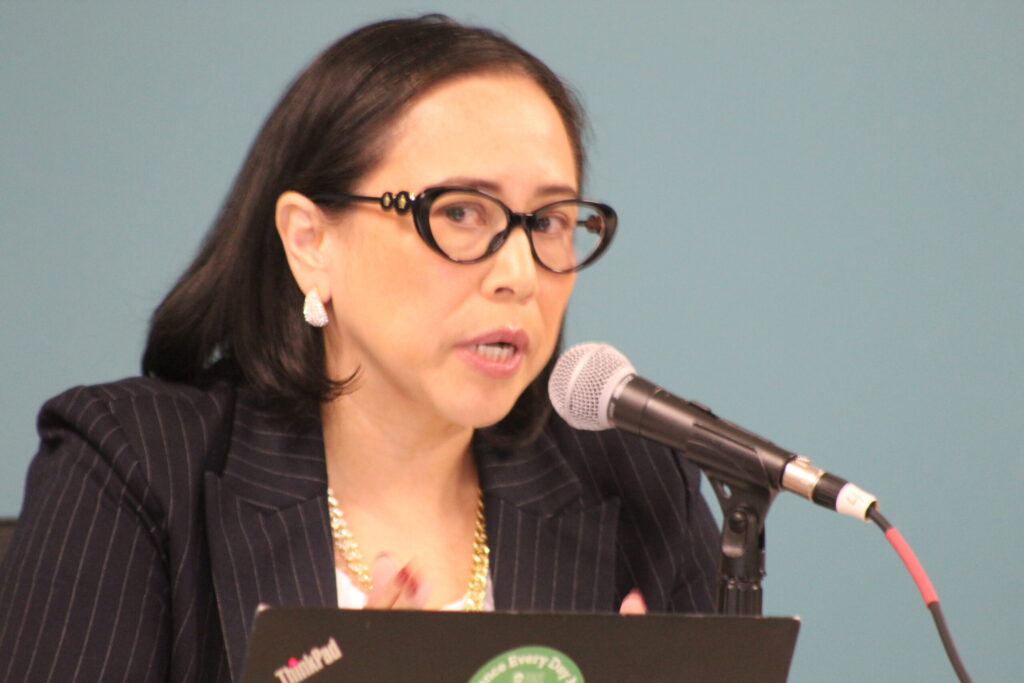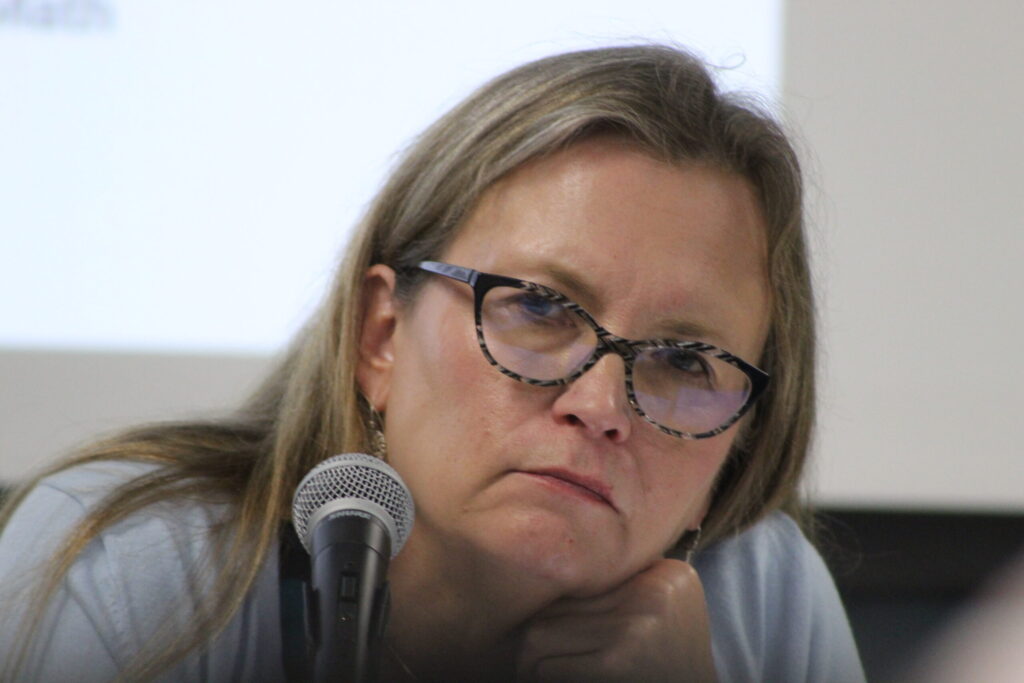Colorado lawmakers send $38.5 billion budget to Jared Polis

Colorado lawmakers completed their work on the state budget on Thursday, sending a $38.5 billion spending plan to Gov. Jared Polis.
The legislative body that drafted the budget for the next fiscal year moved to reconcile differences between the two chambers this week, and the House and Senate adopted those changes today.
Should the governor sign the plan – there’s no indication he wouldn’t – spending for state operations next year will increase by 8.9% over the current yet or about $1.2 billion more. The bulk of that spending is allocated for health care, in particular, to handle the expiration of enhanced federal Medicaid match tied to COVID-19.
Democrats expectedly praised the spending plan.
Joint Budget Committee Chair Rachel Zenzinger, D-Arvada, called the budget “responsible and thoughtful.”
“We’re delivering for Colorado families by making record investments in K-12 education, supporting our health care workers, and creating safer communities – all while keeping our state on solid financial footing,” Zenzinger said in a statement. “We’ve worked hard to create a balanced, thoughtful budget that funds the infrastructure we need to meet our obligations to our families and communities while helping ensure every Coloradan has what they need to thrive.”
Jeff Bridges, D-Greenwood Village, also a member of the budget committee, said the budget reflects “our core Colorado values of opportunity, independence, and responsibility.”
“The investments we’re making today will prepare our students for success, increase our housing supply, respond to workforce needs, and lower the cost of health care for our Colorado families,” Bridges said. “All in a balanced budget that puts Colorado on a sound and sustainable fiscal path into the future.”
Minority Leader Mike Lynch, R-Wellington, called the budget “massive” and “irresponsible spending by bureaucrats.”
“You can tell where a state’s priorities are by the way it spends its money. Unfortunately, for Coloradans, the Democrat majority has prioritized social programs over jobs, and ideology over making government less expensive,” Lynch said.
Lynch said the spending proposal fails to adequately prioritize the needs of Colorado families or businesses in the areas of public safety, education, infrastructure, and transportation.
The budget, he said, “expands irresponsible spending by bureaucrats, at a time when real people, with real bills are watching their paychecks shrink and costs skyrocket.”
Lynch added: “Colorado lawmakers have overspent as if our citizens and our country were headed towards an economic boom, instead of the current economic uncertainty. Coloradans deserve balance in both their government and budget, and this bill fails to address either of those needs.”
The largest changes to the budget dealt with funding for crime victims, both in the Department of Public Safety ($30 million) and the Department of Public Health and Environment ($5 million). While the conference committee kept the amendments, they reduced the amounts to $8 million for the public safety fund and $4 million for the CDPHE fund.
The conference committee also restored all the amendments that were part of the deal made by the two caucuses during the House’s deliberations on the Long Bill, which is the main spending measure, although most appropriations were reduced. That included an appropriation to a criminal justice diversion program within the Behavioral Health Administration, which the panel reduced from $5 million to $2 million. An appropriation to cover courthouse repairs, initially approved in the House at $850,000, went down to $425,000.
The panel also reduced an appropriation of $5 million to Denver Health, which is struggling financially, to $1 million. Denver Health earlier this year was given $5 million through the mid-year budget adjustment process.
The conference committee also made a few changes that weren’t part of the amendments offered by the House or Senate.
The largest was the $10 million boost to the Division of Insurance for the state’s reinsurance program, an amendment not included in the debates over the budget.














